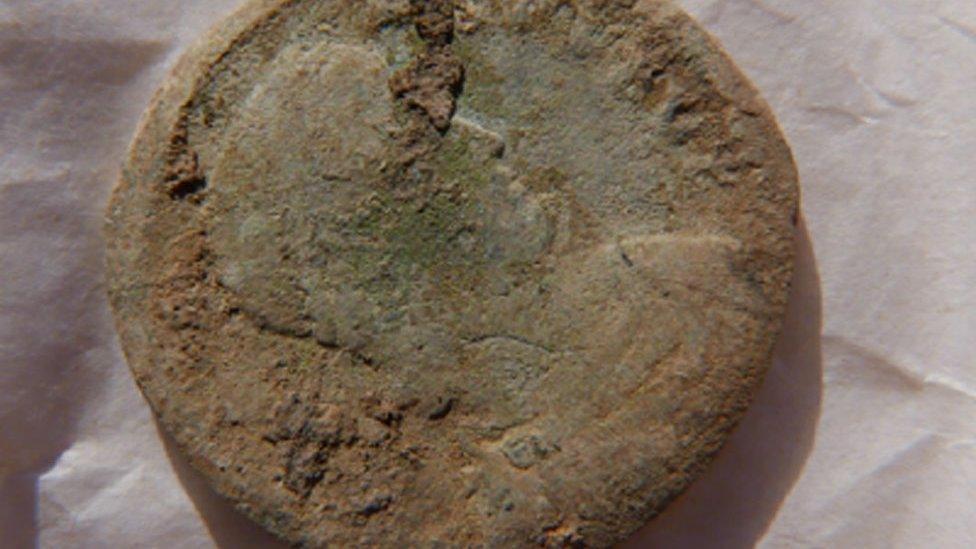Archaeologists concerned over Orkney decomposing tape hunt
- Published
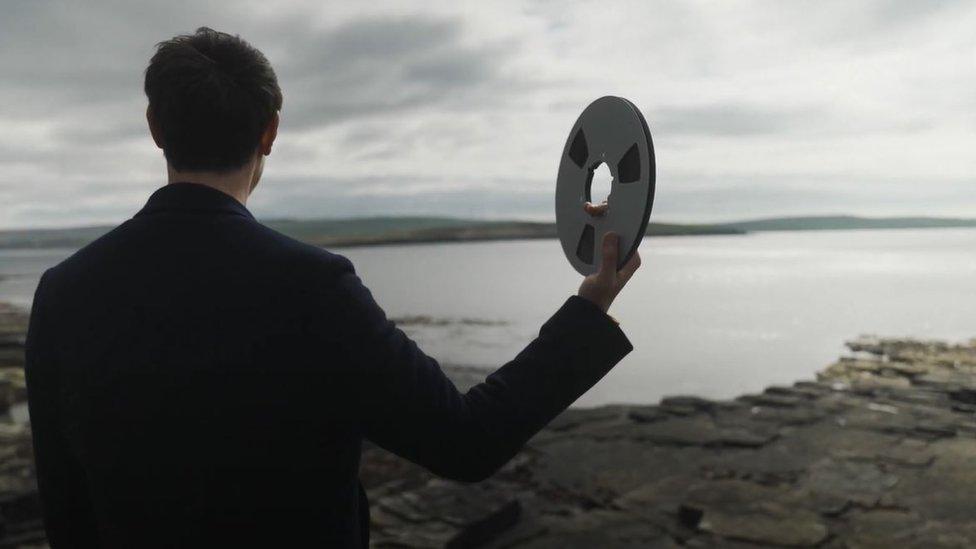
The reel of magnetic tape contains the only copy of Erland Cooper's new album
Musician Erland Cooper has released a new album each year for the past three years - inspired by the history and landscape of Orkney.
His latest project attempts to go one stage further, and gets the peat and rain of the islands to play their part along with the musicians.
The only copy has been buried in the county, to "decompose" in the soil.
But plans to get fans to try and find - and dig up - the recording are worrying archaeologists.
Caroline Wickham-Jones, who specialises in Stone Age Orkney, told BBC Scotland: "We have many, many sites, a few of which you can visit. Many of which are protected by law. Many of which are not. All are fragile.
"And while I'm sure that Erland himself knows and understands this, and won't have buried it anywhere near any of our archaeological sites, what worries me is that he can't control what enthusiastic music lovers will do, trying to find this tape."
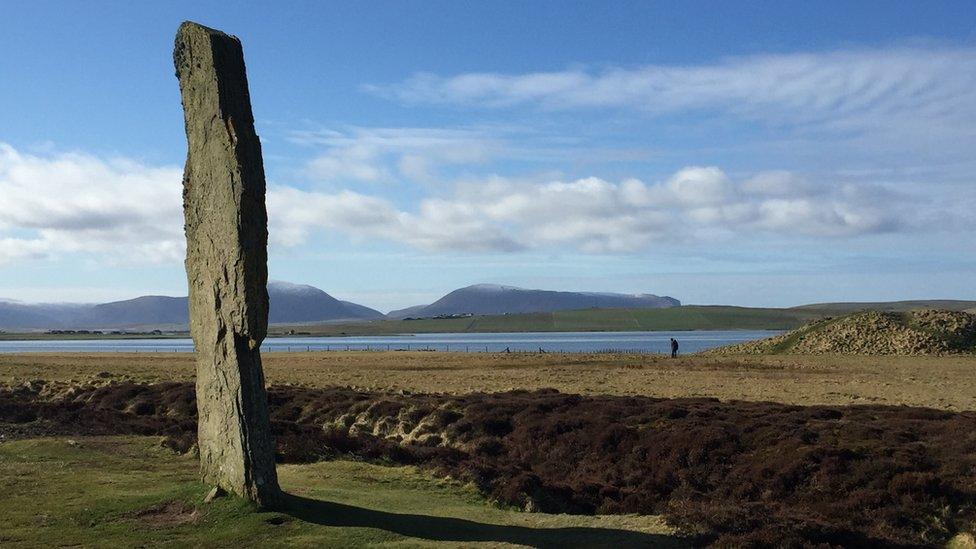
Archaeologists worry that enthusiastic fans might try and dig at precious - and vulnerable - sites in the Heart of Neolithic Orkney World Heritage site
Cooper says he plans to release the record - and perform the music live - exactly as it is changed by being buried in the soil.
He told BBC Radio Orkney: "It wobbles, it bends, it crackles. It even drops out, and has moments of silence. So it's kind of a collaboration with the landscape itself. I've passed it over to my final collaborator, and we'll see what the soil does to it."
He said he had buried - or "planted" - the tape somewhere that was special to him.
"I've put it somewhere very respectfully, I must say. I've not done, I hope I've not done, anything wrong."
But, he added: "I entirely understand Caroline's concerns and want to put everyone's mind at rest that there is no intention that anybody should search or dig near, or in, any archaeological sites or graveyards."
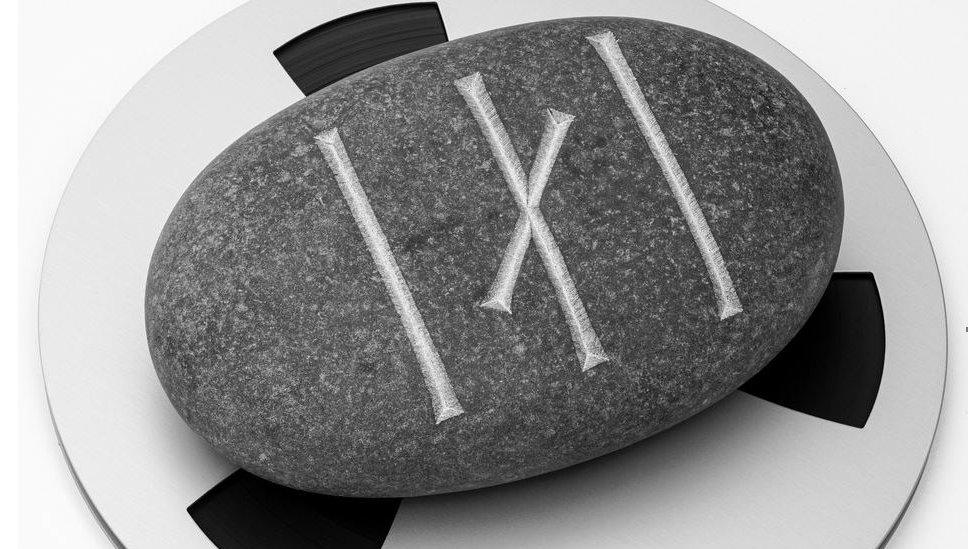
The site where the tape has been buried is marked with this specially carved stone
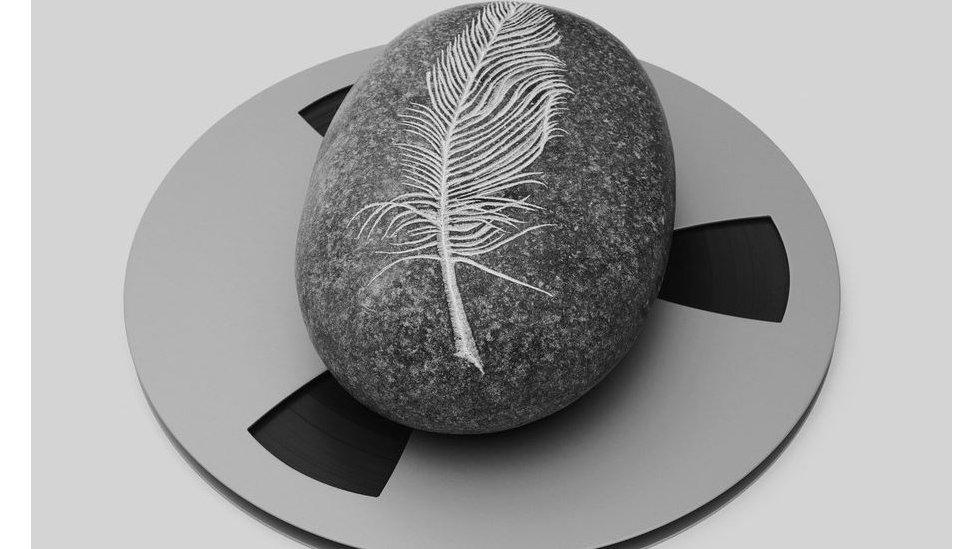
It has been marked with runes on the front and an engraved feather on the rear, and was made by the sculptor Jo Sweeting
He has revealed that the place where the album is hidden is marked clearly with a stone with special markings on it.
"The stone has two distinct engravings, one on the front and a feather on the rear. It was made by sculptor Jo Sweeting. Only if you find this stone, should you dig at all", he said.
A spokesman for Mercury KX/Decca, the record label which will release the recording in three years' time - or when it is found by a treasure hunter - said: "The history of Orkney and the ecosystem of the islands is a huge focus of this work, and Eland has taken extra care to be as thoughtful and careful as possible."
In March 2019, Cadbury withdrew a promotion which had encouraged children to "grab your metal detector and go hunting for Roman riches" after a backlash from archaeologists.
The firm said it had aimed to inspire families "to go on everyday adventures", but that it was not its intention to encourage anyone to break the rules regarding the discovery of new archaeological artefacts.
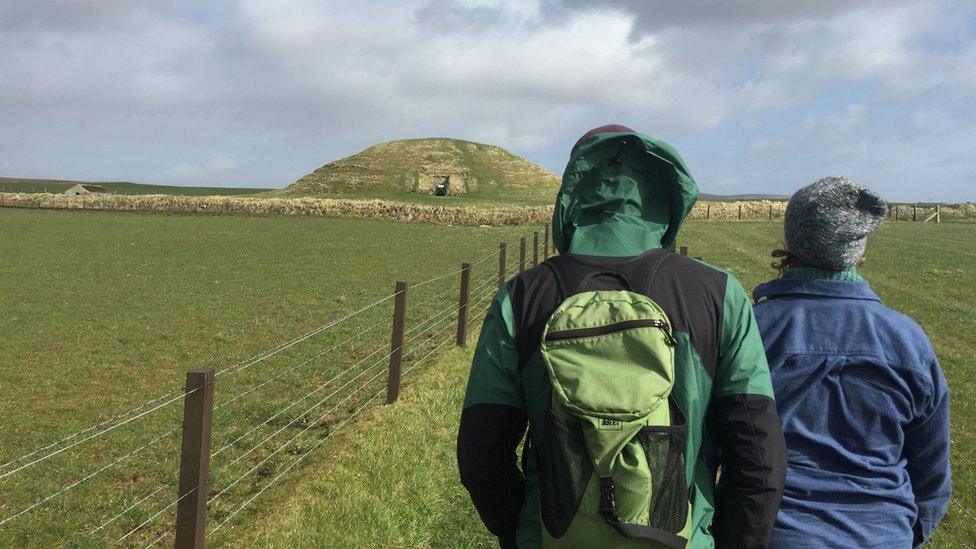
Sites such as Maeshowe are currently closed because of Covid-19 restrictions, but archaeologists are concerned music fans might try and dig there
Ms Wickham-Jones said that case showed the potential for people to do damage without realising it.
"There has been evidence in the past where over-enthusiastic treasure hunters have - without meaning to - damaged archaeological sites," she said.
She has welcomed the clarification from Cooper - and said she hoped she and other concerned archaeologists won't be seen as killjoys.
Ms Wickham Jones said that as long as Orkney's heritage is not damaged in the process, burying the tape in the soil is a "great project" and "in many ways it is an archaeological project, because archaeology is all about the way in which the soil changes the evidence that we, as humans, leave behind."
Related topics
- Published14 June 2021
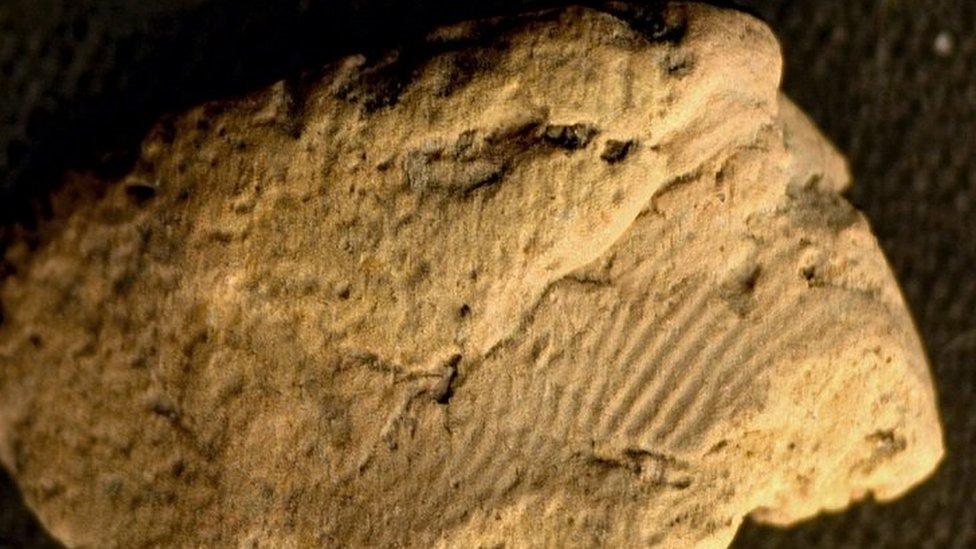
- Published18 July 2019
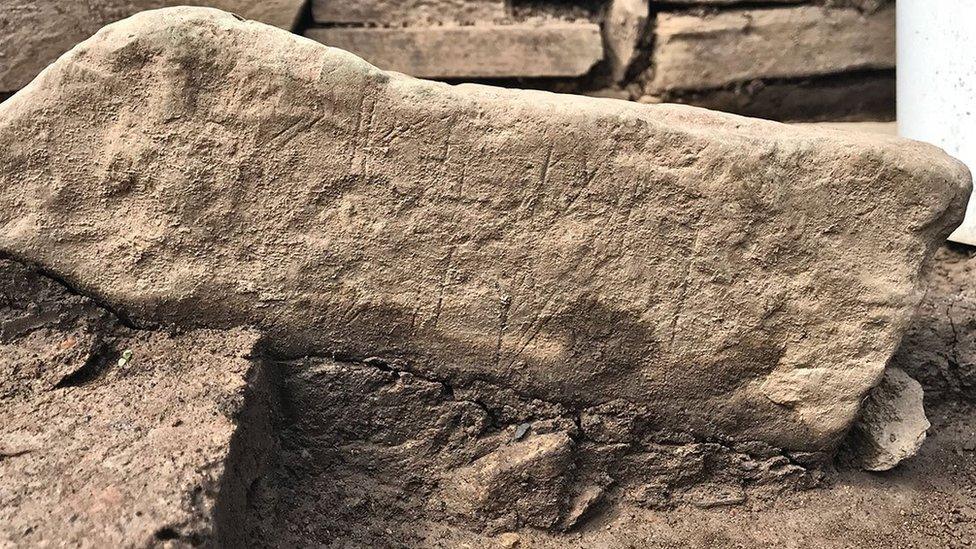
- Published17 July 2017
